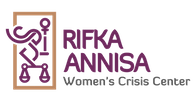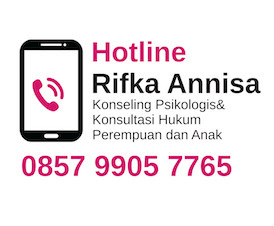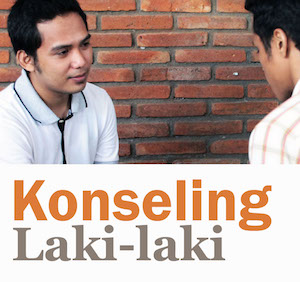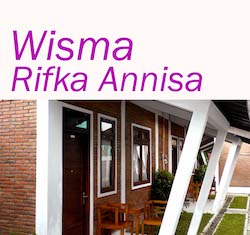
The program ‘Rifka Goes To School’ is an initiative by Rifka Annisa to educate school-aged children on violence against women, sexual violence and healthy relationships. On the 6th of August 2015, a team from Rifka visited SMP Pangudi Luhur 1 Yogyakarta, a mixed-gender middle school for children aged between 12 and 15.
In a series of workshops and presentations for children from all year groups, Rifka attempted to introduce the issue of violence against women, coercive or abusive relationships and cyber bullying. These topics are serious and important so that children are able to identify if they ever find themselves in these kinds of violent situations. For the older children, Rifka also encourages them to talk about their dreams for the future, and how to healthily plan for achievable goals. Mental health and healthy relationships are important concepts for teenagers to understand as they begin to have intimate romantic and even sexual relationships.
All the seminars and workshops begin with an explanation of who Rifka Annisa is, and what we do. As a Women’s Crisis Centre in Yogyakarta, Rifka offers counselling, legal and health services for women who have experienced violence. Rifka exists to change the culture around domestic violence and stop violence against women, through education, response services and activism. After explaining our mission and services, the next topic was domestic violence.
Most of the children seemed to have a good understanding of domestic violence, so intimate partner violence became the next focus. Intimate partners such as boyfriends or fiancés can be abusive and coercive to their partners, even if both people feel love for each other. By showing the children videos of an over-controlling and emotionally abusive boyfriend, Rifka was able to ensure these girls would be able to identify abusive behaviour. Things like looking through their phone without permission, restricting their activities such as spending time with friends or talking to other men, and emotionally manipulating them were all identified as abusive behaviour.
Next, Rifka used role-playing between the two presenters of the seminar to give examples of sexual, psychological, physical and economic abuse. Some of the examples include your partner touching you when you do not want to be touched, your partner hitting you in an argument or constantly making you pay for things. This role-play showed in a humorous and interactive way, examples of intimate partner abuse in order for children to become acquainted with what to look out for when they begin having intimate relationships.

Internet safety was the final lesson, particularly in relation to sexual harassment and bullying online. The team showed another video of a girl named Amanda who experienced severe online bullying and sexual harassment. The story of Amanda and how a nude photo of her was used to bully her for years through facebook and online stalking caused serious mental health issues for her. Rifka used this example to discuss anxiety and depression, internet safety, cyber bullying and suicide – as Amanda committed suicide after 5 years of consistent sexual bullying.
"Through this educational program Rifka Goes To School, it is our hope that we can provide early intervention to the issue of gender-based violence, for children of all genders and change the culture that perpetuates violence against women and girls," said Niken Anggrek, one of facilitator. []
Author: Bridget Harilaou (This email address is being protected from spambots. You need JavaScript enabled to view it.)
Student intern in the Media and Public Relation Division, Rifka Annisa







